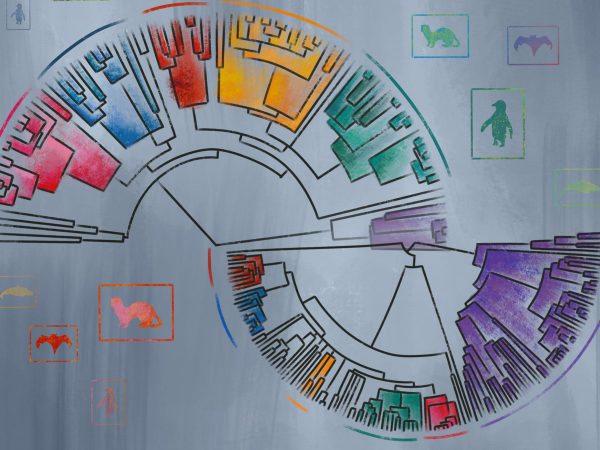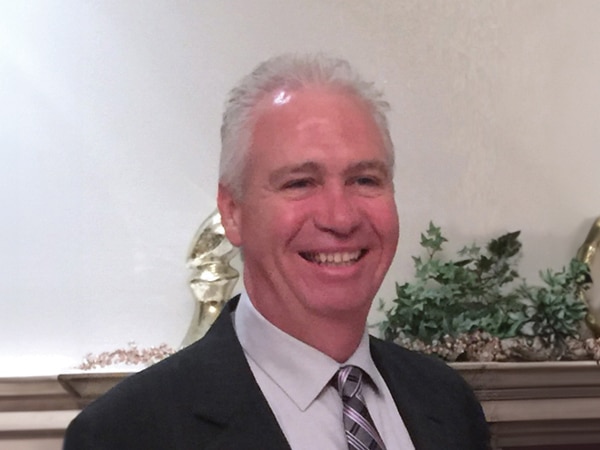Rocky Lagno: Surviving Cancer Thanks to Medical Research
For recently married James “Rocky” Lagno, molecularly targeted therapy for his non-small cell lung cancer meant a return to a quality of life similar to what he enjoyed prior to his diagnosis.
James “Rocky” Lagno’s journey with cancer began around Thanksgiving in 2010, when the Epping, N.H., man developed a dry cough that wouldn’t go away.
Rocky had never smoked in his life, and none of the physicians he consulted for the cough mentioned cancer.
“Finally it got to the point that I had no energy and couldn’t catch my breath,” Rocky recalls. “I went to an urgent-care facility, and they thought it was pneumonia. Then I started coughing up a little blood. I went back to the urgent-care facility, and a doctor there suggested it could be lung cancer.”
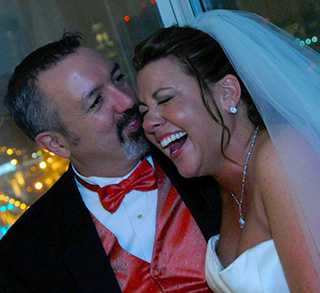
For Rocky and Geralynn – his wife of less than two years – the idea of lung cancer was an extreme shock and upsetting. The impact wasn’t eased when Rocky went to an oncologist.
“The oncologist told me that I should probably think about a bucket list, but also suggested I should get a second opinion,” he says.
Rocky and Geralynn did just that and traveled to Boston, where he was put on a regimen of intravenous chemotherapy and an aggressive course of daily radiation for his non-small cell lung cancer. Scans revealed that the standard treatment wasn’t shrinking Rocky’s tumors – they were actually getting bigger.
“I was told I should get my affairs in order because a patient in that situation has on average about 13 months to live,” Rocky recalls.
But Rocky and Geralynn weren’t ready to quit. Geralynn had done extensive research and found a new medication was being used for patients with that non-small cell lung cancer who had the ALK mutation. She insisted Rocky undergo another biopsy and genetic testing to see if he had the mutation and might get a molecularly targeted therapy.
He tested positive for the mutation.
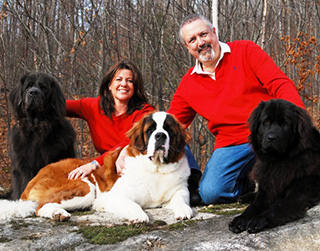
“I started taking the drug crizotinib, which had recently been approved as a treatment for ALK-positive lung cancer,” Rocky says. “It worked well for several months in controlling the tumors, but then it was no longer effective. By that point I was so tired I couldn’t walk the dogs. My oncologist suggested I contact Dr. Alice Shaw at Massachusetts General Hospital, who was conducting a clinical trial of another drug targeting ALK, ceritinib.”
But because Rocky had already had a second primary cancer – thyroid cancer – and because his lung cancer had spread to his brain, he was not eligible for the clinical trial. Still, the couple wouldn’t give up and Dr. Shaw was able to get a so-called compassionate-use exemption for Rocky to receiver ceritinib.
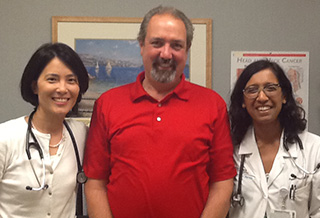
“The first few weeks were rough because we had to get the dose right and there were some side effects, like nausea and gastrointestinal issues,” he says. “But then we got it straightened out, and since the middle of 2013, my condition has been stable. It’s not a complete recovery, and I don’t have any expectation of going into remission or becoming cancer-free, but my quality of life is practically back to what I had before the diagnosis.”
Even though Rocky knows it is unlikely that he will ever be cancer-free, he will not give up hope. He is confident that cancer research will continue to develop new treatments to keep his disease in check.
In fact, new therapies that target the specific mutation of patient’s cancer hold tremendous potential to transform the outcomes for people like Rocky.
You can read Rocky’s full story in the AACR Cancer Progress Report 2014.


